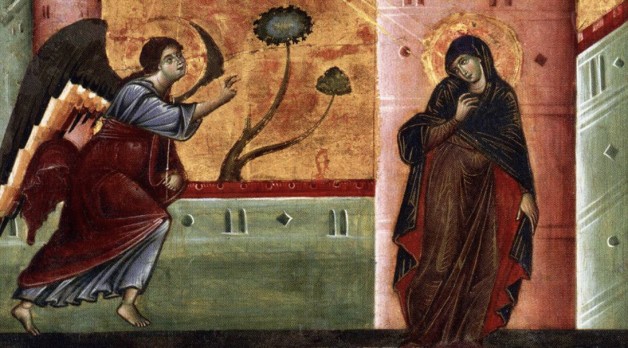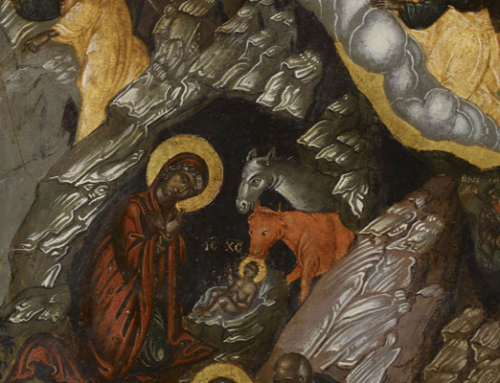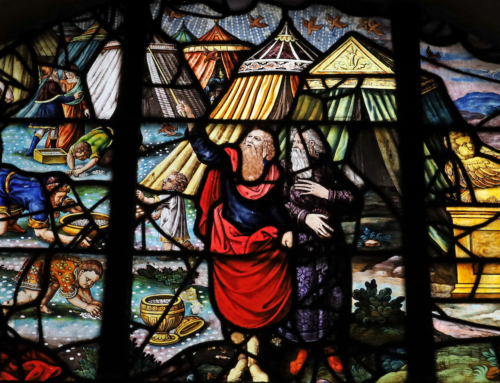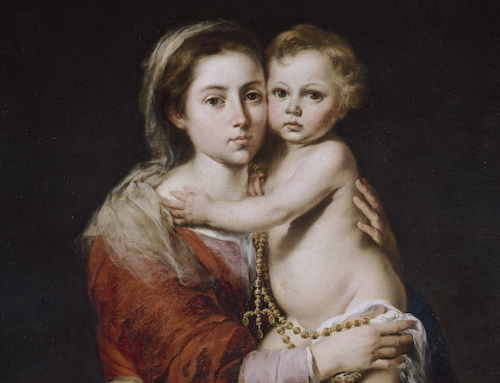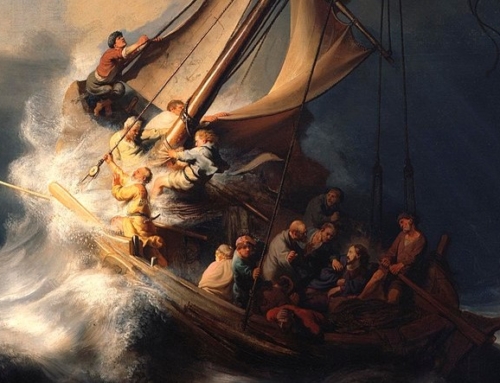This Sunday, the First Sunday of Advent, marks the beginning of a new liturgical year for the Church. For the next twenty-three days, we turn our attention to the words of the prophet Isaiah: “Prepare the way of the Lord, make straight in the wilderness the paths of our God” (40:3). We know that the Christ child is on his way. The infant Christ, born in the stable because there was no room in the inn, surrounded by shepherds and animals, with the hosts of heaven singing glory to God . . . The story is all too familiar, so familiar that we can almost fail to notice, going about our daily routine as if nothing were changing.
But the Church, in her wisdom, gives us these next twenty-three days to take a step back from the daily routine and, with anticipation and hope, prepare our bodies and souls to receive the Messiah on Christmas Day. We are asked to become, by the grace of God, worthy temples of the Lord, through the sacraments, prayer, and penance.
Over the past two weeks, we have been reading from the book of Revelation at Mass. We’ve heard about the end of the end of times, the judgment of the world, and the great battle, and all of this just before we begin to light the candles of the Advent wreath. In our preparation for Christmas—Christ’s first coming—we also prepare for his second coming. These readings are a wake-up call. They are meant to instill excitement, expectation, and even a certain fear, in our souls. Are we ready to receive Jesus Christ into our life?
Throughout Advent, the Church turns her attention to the great prophets who foretold the coming of the Savior. The readings at Mass, the Divine Office, the vestments—all are meant to open our hearts in expectation. As we see and hear these things, we incorporate them into our prayer, asking the Holy Spirit to fill us and to make us ready. And we wait. We wait for the Promised One to come into this world and to save it.
There is a beautiful homily by St. Bernard that we read at Matins each year on December 20th. In it, St. Bernard begs the Blessed Virgin to say “yes” to the archangel Gabriel at the Annunciation. In pleading for her response, he speaks on behalf of all mankind:
Why do you delay, why are you afraid? Believe, give praise, and receive. Let humility be bold, let modesty be confident. This is no time for virginal simplicity to forget prudence. In this matter alone, O prudent Virgin, do not fear to be presumptuous. Though modest silence is pleasing, dutiful speech is now more necessary.
St. Bernard captures the deepest longings of the human heart—the infinite desire, the ultimate need for Jesus Christ, without whom we are forever trapped in the valley of the shadow of death. This is the purpose of the Advent season we are entering. Realizing how desperate we are for Jesus, we hasten to prepare our bodies and souls to receive him. As our whole being cries out, “O come, O come Emmanuel,” we heed the command of St. Bernard at the coming of our Lord:
Arise, hasten, open. Arise in faith, hasten in devotion, open in praise and thanksgiving.
✠
Image: Guido da Siena, The Annunciation

